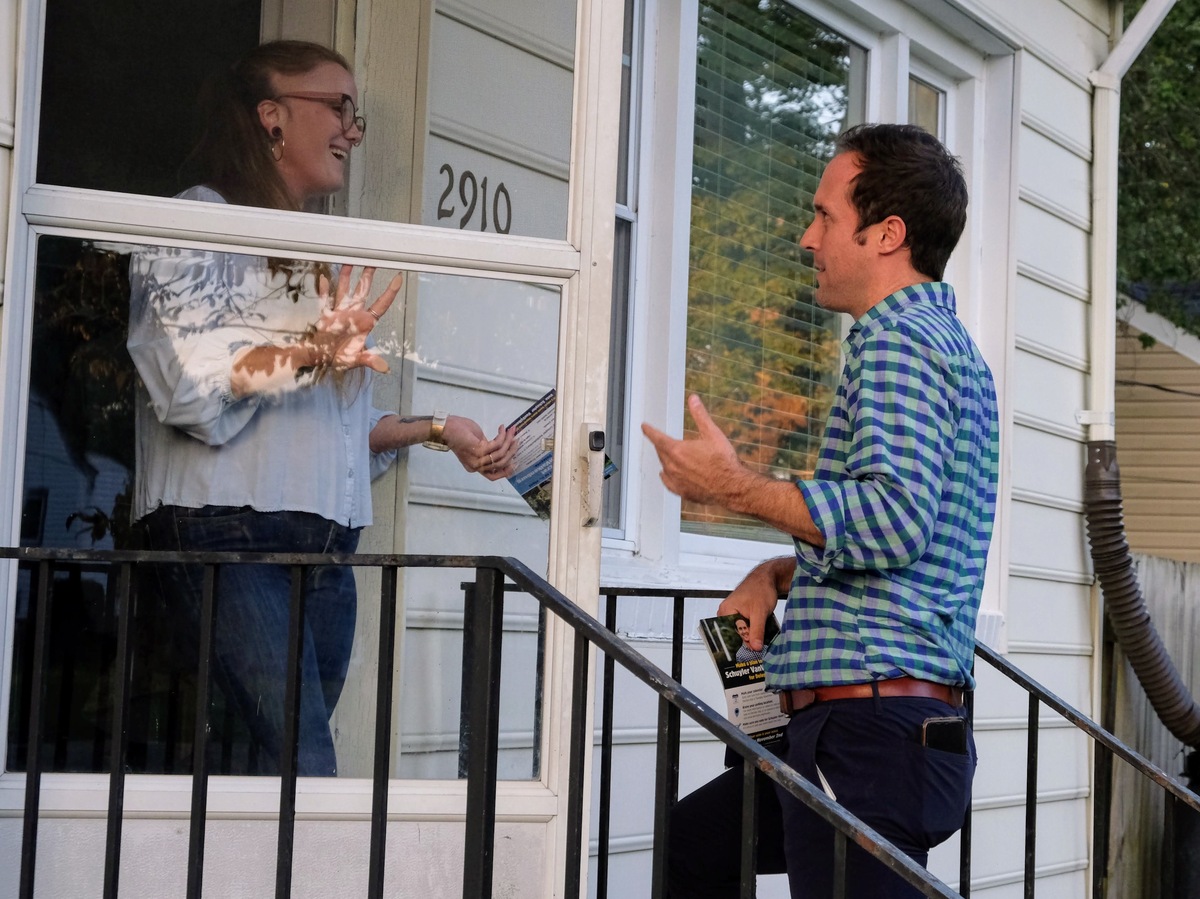So far, flushing the ‘toilet bowl’ district is the cleanest part of Va. redistricting

Enlarge this image
Redistricting reform advocates in Virginia pitched the creation of a new commission as a remedy to unfair political maps, like the ones shown on this poster from 2019, but the new group has struggled to reach consensus.
Yasmine Jumaa/VPM
hide caption
toggle caption
Yasmine Jumaa/VPM

Enlarge this image
Democratic Delegate Schuyler VanValkenburg, door knocking for his race on Nov 2., represents the district sometimes referred to as a «toilet bowl» in Virginia’s House of Delegates. Although, he says he prefers to call it a «horseshoe.»
Ben Paviour/VPM
hide caption
toggle caption
Ben Paviour/VPM
Democratic Delegate Schuyler VanValkenburg, door knocking for his race on Nov 2., represents the district sometimes referred to as a «toilet bowl» in Virginia’s House of Delegates. Although, he says he prefers to call it a «horseshoe.»
Ben Paviour/VPM
State Delegate Schuyler VanValkenburg, a Democrat who represents the so-called «toilet bowl» district (although, he prefers to call it a horseshoe), says changing demographics and anti-Trump sentiment allowed his party to eventually flip both legislative chambers in 2019, but the mood is different this year.
«The wins in 2017 and 2019 were narrow wins because they were gerrymandered,» VanValkenburg says. «And so that requires a high level of turnout and requires a high level of voting to keep these seats.» That is not necessarily the case with a Democrat in the White House.
As he campaigns this fall, VanValkenburg has occasionally checked in to see various proposals on how his district should be redrawn. Back before voters passed it, many Democrats in Virginia advised voting against the commission, warning that the inclusion of politicians would keep it from being independent enough from politics. Also, that it wouldn’t do enough to make sure minority groups were fairly represented.
VanValkenburg — who championed the commission — says despite the body’s failings, it’s still a step in the right direction.
«The process we have now is very transparent,» VanValkenburg says. «It’s very open. I think people are seeing how messy redistricting is — hopefully it leads to more reform. I would be a fan of more reform.»
Several members of the commission have already offered up ideas on how to improve it: removing politicians, adding independents or creating a partisan balance that reflects the state’s political makeup rather than a 50-50 split.
Democratic co-chair Greta Harris advised her colleagues to read up on Virginia’s history of racial discrimination after heated debates over how people’s race should be used in maps. Harris also spoke directly to the Supreme Court of Virginia, which is now poised to take up the drawing of state maps as the commission deadlocks.
«I am appealing to the justices of the Supreme Court of Virginia, to take the principles that we discussed at the beginning of this process … to look at the law, not only at the federal level, but at the state level, and lift up fairness,» Harris said, before walking out of the meeting.
It’s all a disappointment to voters like Julia Hebner, a 14-year resident of the horseshoe-shaped district who supported creating the commission. Hebner blames politicians in the group for its failings and says they should be excluded in the future.
«I mean, everybody says this: The politicians shouldn’t be choosing their voters. The voters should be choosing the politicians,» Hebner says.














Комментарии 0